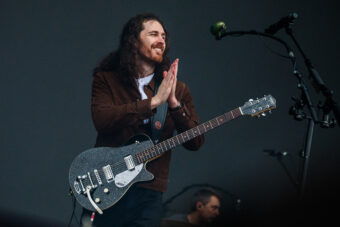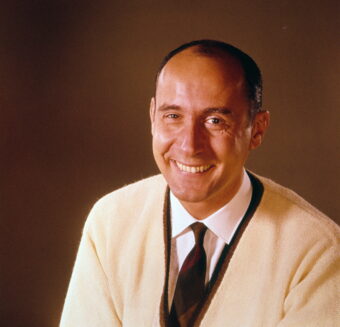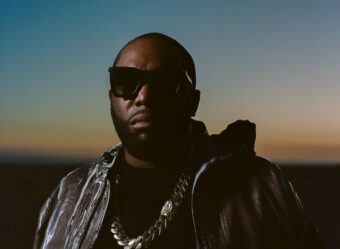The right side of his oversize, hooded jacket is mosaicked with nearly two-dozen pins, almost all things iconic Warhol—Campbell’s Soup, Marilyn, Elvis—with a little of his idol, Bob Dylan, thrown in for good measure. Unless you look closely, his large neck tattoos are the most immediately visible, namely the typewriter-print, square-in-full-view statement across the base of his neck that reads: “I am myself.”
Only after we’ve settled over dirty chai lattes does he begin to unpack what it means to be newly 36. The year quickly commenced with the prestigious Worst Director Award at the 2023 Razzies, an honor he’s sharing with friend and co-director of their 2022 film Good Mourning, Colson Baker, better known to most of us as Machine Gun Kelly. Laughing it off as “legendary”—“Coming into the game as the worst director, it's only up for me, right?”—he notes he lost for Worst Supporting Actor to Tom Hanks. “Next year, maybe,” he says, smiling.
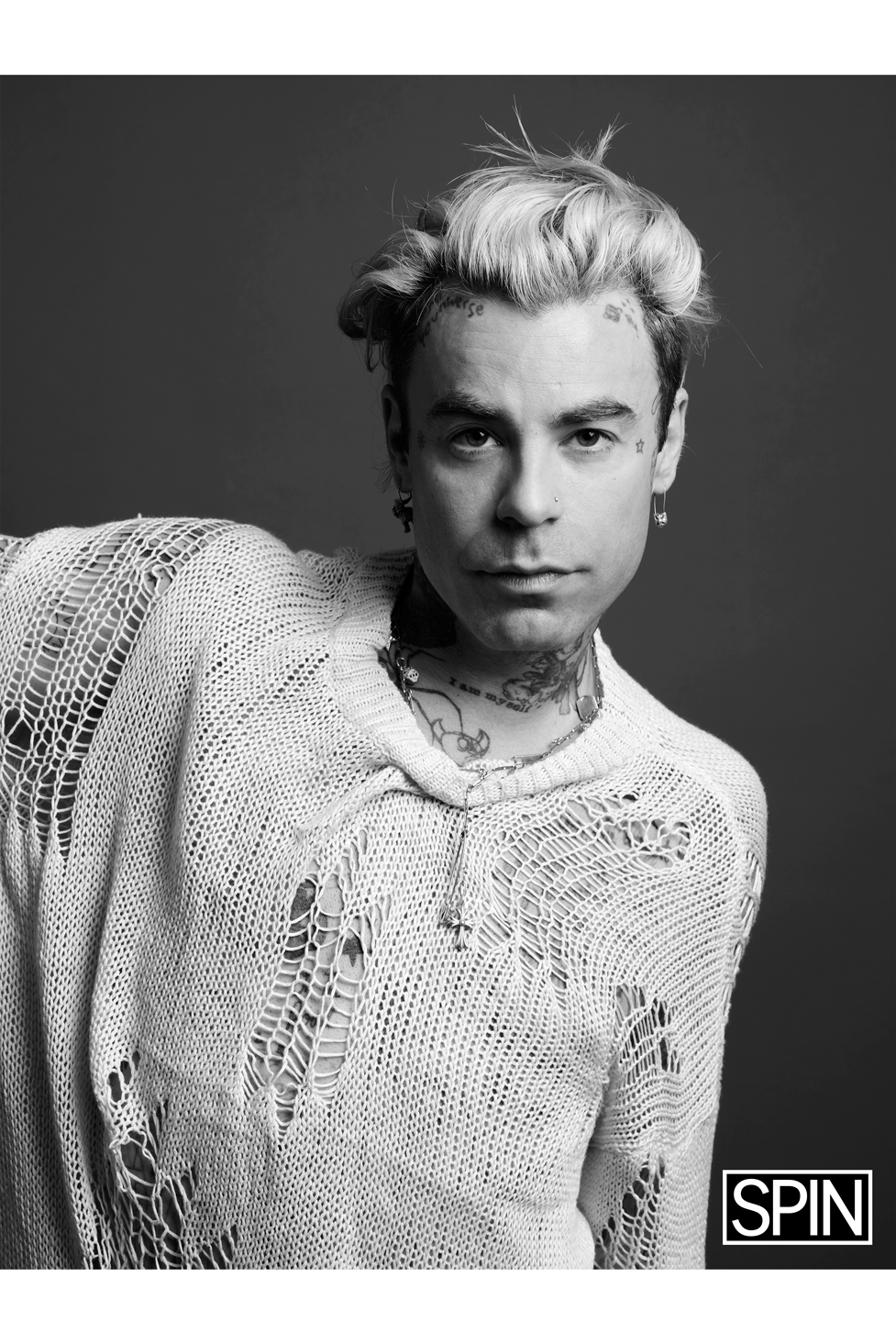
The end of his 35th year was highlighted by the inanity of mainstream media treating public figures’ private matters like an Atlantic City buffet, specifically the last many weeks and his very public breakup with fiancée and collaborator, Avril Lavigne. But if you’re expecting this to be a story of heartbreak, you’ll be greatly disappointed. It is, however, an undeniable love story: MOD and art, his reverence for the rhythmic word, the song he wrote for his mother, his sobriety, and the droves of “friends” (he doesn’t call them “fans”) readying this very afternoon to trudge through a storm to see him.
And that’s just for starters.
He’s future-focused—why wouldn’t he be? On February 19th he launched the biggest headline tour of his career, 25 U.S. cities coast to coast, to promote his new album, God Save the Teen, an obvious homage to a certain ’77 punk classic. With any luck, there’s still hope for teens in this weary world, even if everything around them—the perils of social media, specifically—is devoted to their demise. “I think that now more than ever, we're in a place where kids think that their life is being defined by a number, 100%,” he says. “Social media has allowed for people to believe that they are creating their life on the internet and that number next to their name shows how worthy they are in life. I think that there's either a rebuilding or a complete destruction of what the future could be right now… and it's in the hands of the people that come after you, always.” In his mid-thirties, he takes this universal big-brother role really seriously, and is hoping for better for those who come after him. Songs like “Delusional Confidence,” off the new album, address the dangers of living in a world filled with follower counts and filters: And all these flaws on my face, they’re not accidental / All these scars on my body, that’s what makes me special.
If Charles Bukowski was alive today, MOD says, he’d be writing about this.
If the role of the poet is to reflect the world around them, it’s one MOD takes to naturally. (“Fuck the filter. That's like a Bukowski book right there.”) It’s not every day a conversation effortlessly floats towards French poet Arthur Rimbaud’s A Season in Hell or anything Jack Kerouac—it does with MOD, though. Did I Ever Wake Up?, the first of six books he’s published, is an instructional autobiographical tome for those wishing to pursue the life-what-is-it-but-a-dream wonderland he lives every day. “I've convinced myself that I died when I was 19,” he tells me. “I'm living in that lucid state after that, and that all of this is, as selfish as it sounds, conjured up in my mind.”
He did, in fact, almost die nearly four years ago of an overdose. Now he tracks his sobriety, holding up an app that reads: May 11, 2019.
“Three years, nine months, 20 days ago, I almost died from a seven-day bender of a cocktail of drugs and extreme amounts of alcohol, was given a second lease on life that day, and that day decided to clean up everything about my life,” he says. “That night, I went to the studio with a group of my friends, and that was when that song was put into the universe for me, ‘Battle Scars’.”
The song was released in August of 2022, ahead of the new album. “I felt like that song was my sponsor, really,” he says. “That's what that song was to me in this journey of sobriety and being aware of my scars from this battle that I've had. Being aware that there's more life to live. That song really encapsulates that whole actual time for me. It's my great trade, my great reminder.
“One thing that'll make everything stop for you in life is walking around carrying shame. Every time I did a line of cocaine, I felt absolute shame. I knew in my heart I was like, ‘This is going to kill me.’ I had to eliminate that. It's like…I [had] my suitcase of trauma that I was carrying around every single day, and I traded that in for a toolbox to give me the tools to really bring my life to where I wanted to go.”
I say it's time for the truth
You say it's time that I leave
I think the problem is you, is you, is you
You think the problem is me
“Battle Scars”
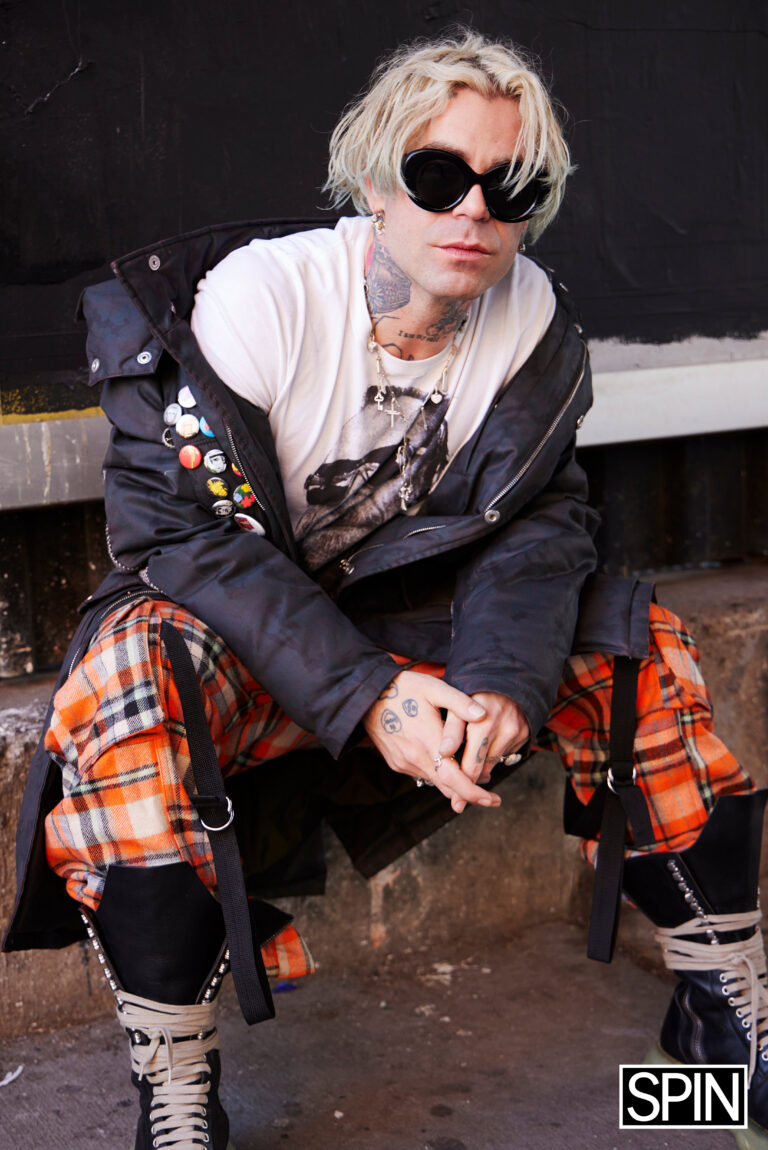
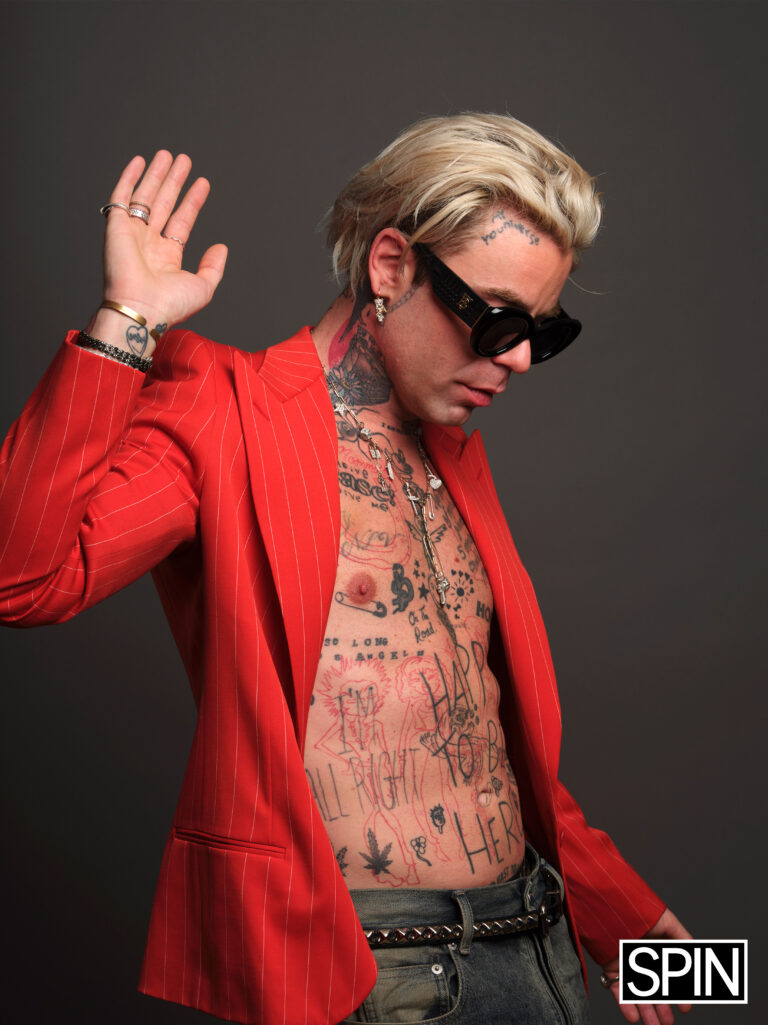
“I guess the first tool is eliminating shame from your life. Life is a wild ride, embracing the downs as if they're ups, as well. I would say 10 times out of 10 when someone grows, it's through the pain. Embracing the downs just as if it's celebrating them, just as if they're ups, [is] super hard, super hard, but possible, very possible.
“So much of my music and my mentality is manifested. Think about what you want, hold it in your head, and think about the positive. I lost the beauty of being present. Probably the most simple one, but also the most complicated, is forced gratitude. It's easy to be grateful on a day where everything's great, or when you win an award, get what you wanted. It's easy to be grateful then, but… can you be grateful when you feel like shit? Can you still zoom out and be like, ‘Shit, man, I don't know how. Everyone told me I wouldn't even be here today.’ Hold on to that feeling.”
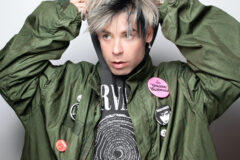
Also Read
5 Albums I Can’t Live Without: MOD SUN
Before, long before, the MOD SUN moniker, when he was Derek Smith, he’d make music to play when he rode around in his car. “Most people hate their own songs, they hate their own voice, they don’t want to listen to their own songs,” he says. “That’s, like, all I do.”
Spending his childhood years on a Minnesota farm, his imagination was often his only playmate. “I've always kind of been a loner…big imagination. I grew up on a farm with no friends left or right, no houses on each side. It's just wild imagination, pretending I'm a spy, climbing trees, and all that, watching cartoons and pretending I'm the main character. I was that kid.”
His parents—Deb Smith, affectionately known as “Mom Sun,” and Dennis Smith, an eccentric dreamer—divorced when MOD (then Derek) was five, and they were forced to leave the farm. He explains that as his mother worked for his father, his dad “fired her'' and left her penniless: “My mom was left with nothing, absolutely nothing…no child support or anything like that.” Starting over, MOD’s mother moved MOD and his sister Danielle, who is a couple of years older, to the suburbs, working hard to build her career in effort to better her family. “That’s definitely where I get my drive from,” he says.
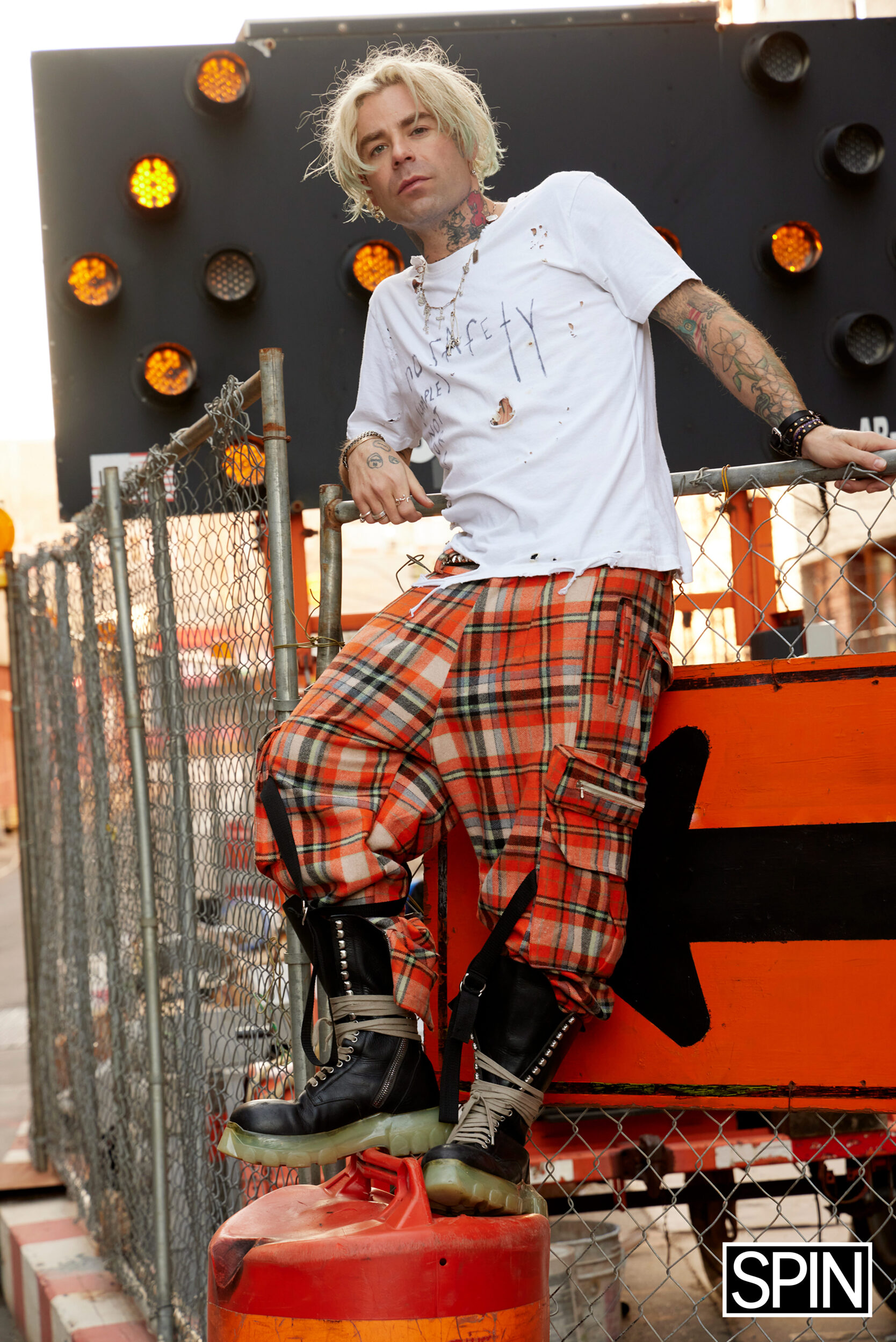
Because they moved often, MOD’s mother enrolled her son in sports, hoping he’d make friends—but then he found skateboarding. “There had to have been a lot of fear when I decided to quit [sports] and be a skateboarder and musician in the suburbs of Minnesota in 1999 and 2000, when it was really a subculture. Skateboarding wasn't cool, you got made fun of. Yes, she supported me all the way through it..”
His new song “Single Mothers” was written for his mom—and is now a certifiable anthem for single mothers everywhere. “She cried her eyes out,” he says, of the first time she heard the song—and she cries every time since. He says it’s a love song, which it undoubtedly is, just not of the usual X-meets-X variety. “To this day, I feel it’s the most special song I’ve ever made that I feel is going to really be a timeless song.”
Yes, I had a dad
But a woman taught me how to be a man
At the age of six, my parents split
I was left there fatherless
Mom's heart would never heal from it
She traded her life for her kids
“Single Mothers”
When he decided to become a musician—taking up drums at 13, heavily influenced by Blink-182’s Travis Barker—he’d played many shows with just his mom in the crowd. This tour, she joined him for a week, and he’d bring her out on stage and sing “Single Mothers “ to her, while the entire audience sang along.
They’re amazed at how far they’ve come. “I'd just be like, ‘Man, look out at the crowd.’ How crazy? It used to be just you out there. It took a long time, but… I couldn't imagine it happening any other way.”
He feels that in order to live wholly, you must accept the good with the bad—your entire life story—recounting the time when he found his father, after a suicide attempt, covered in blood. “You become 100% responsible 100% of the time for everything, good and bad. It's, like…as dark as this might sound, my father tried to commit suicide, right, and I kicked down the door and found him there, and called the ambulance… I'll never forget…he was getting wheeled off in an ambulance and I'm driving covered in his blood, driving to the hospital.” Dennis Smith passed away in 2020.
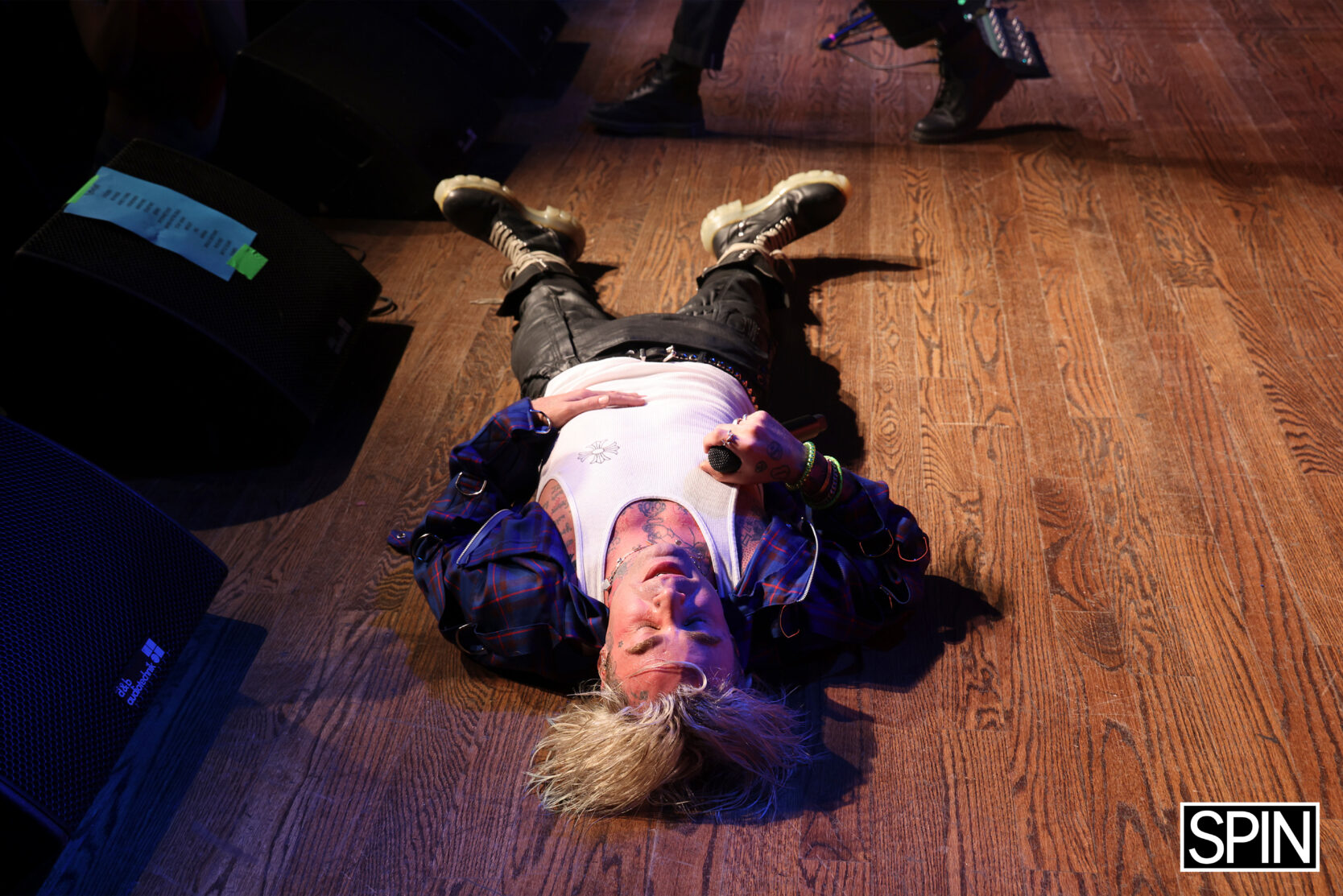
MOD marvels at what a gift his life is, even these difficult memories. “What is a life without those fucked-up moments? What is a movie without that moment, without those moments?”
MOD puts his thumb on the cover of his book, Happy To Be Here, and fans through the pages to show me how it’s designed. As they flutter past, I catch glimpses of the first half, penned by him, reprinted in his distinctive handprint. Drinking whiskey on the beach in Mallorca, making friends with a bridge he liked in Italy, a guide for “How to Grow Wings in Amsterdam,” all are among the many thoughts recorded, the zigs and zags of his mindscape, highlighted by scratched out words and phrases, all on display. A prolific visual artist, he’s decorated the books with line drawings in his bold, modern —neo-expressionist? avant-garde? Basquiat-esque?— street style.
So far, Happy To Be Here is in three volumes, all with the instruction, about half-way through, to flip the book upside down and use the blank half as a journal to write your own story.
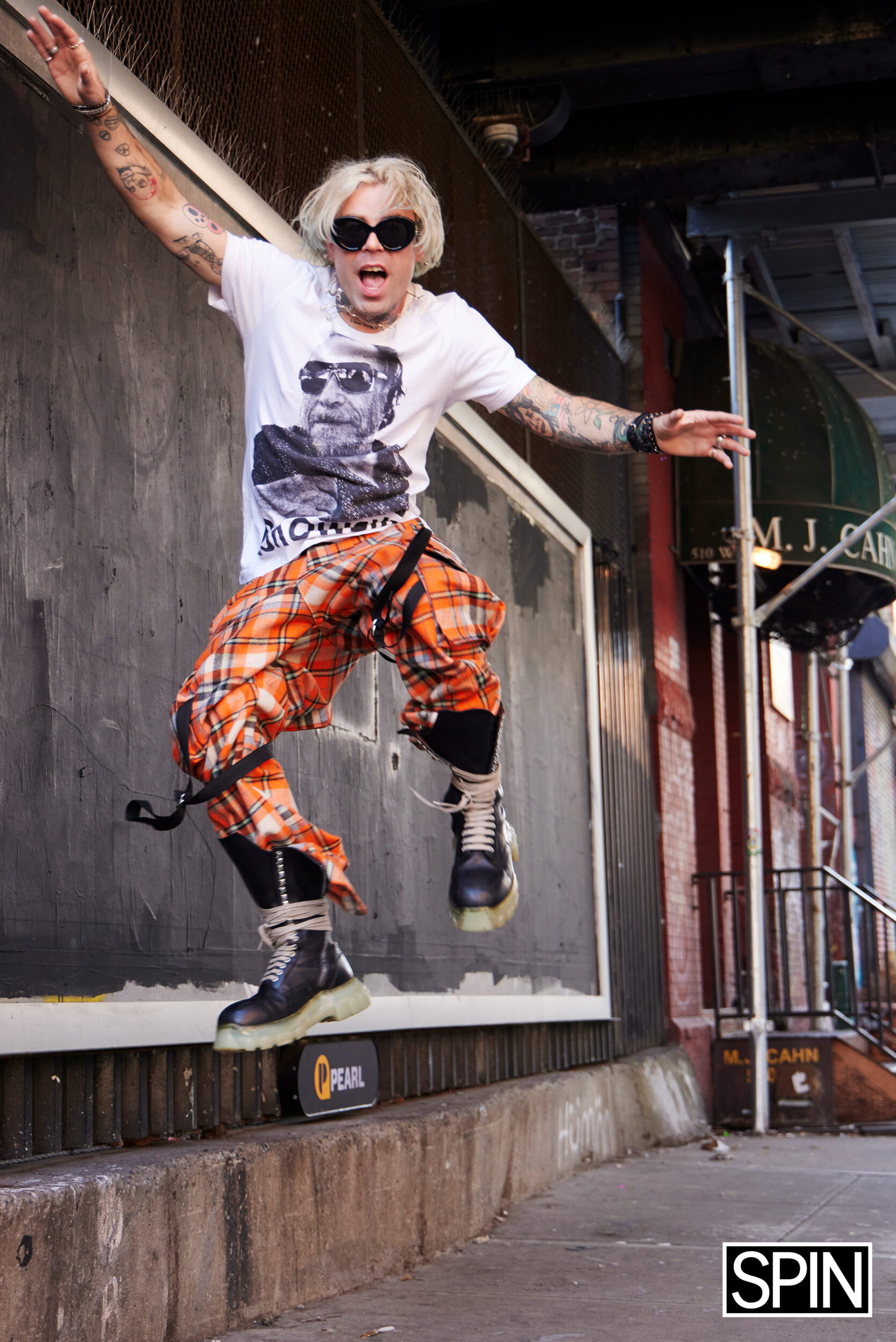
No doubt MOD’s lived many lives since Happy To Be Here was first published in 2015, stating that he feels fortunate to have accomplished so much of what he’d set out to do. His main goal is to keep evolving. “I live in a 10-year cycle of art. I don't know where it came from, I don't know who said it first, but there is this idea in the art community, the painting community, that every 10 years a really, truly great artist recreates themselves. I heard that when I was 13 or 14, and I've lived by that.” From the age of 13 until his early 20s, MOD was playing drums; the next 10 years, he was rapping; and now, fully in the third phase, he’s “singing and playing drums and bringing them together.”
What about after that?
“Then I'll have another 10 years…that's maybe me and a guitar and harmonica just like Bob,” he says, of emulating Dylan. “My goal with my music is to consistently live in that 10-year cycle where it's, like, recreate yourself, be out to your audience, don't become stuck in trying to please them, you know what I'm saying? Be fearless with it.”
He’s aware that he’s not for everyone. And he’s fine with that. “I've been a polarizing artist since the second I entered our community,” he says. “It's been love or hate. There's no middle ground. It's like, yes, he's all right. It's like, I hate this dude's face. Then there's people that's like, ‘Dude, there's undoubtedly 15,000 MOD SUN tattoos in the world.’ Then people are like, ‘No, you've helped me.’ There's never been that middle ground. I don't enjoy the middle ground. I actually learned more from a critique than a compliment throughout my whole life.
“My name MOD SUN stands for Movement on Dreams Stand Under None. It's always, since Day One, been about empowerment. It always has been about believing there's actual miracles. That everything's a miracle. That if you see it inside your head, you can hold it inside your hand. That's been at the heartbeat of everything I make. There's always some underlying tone of ‘believe in yourself before anyone else has the chance to believe in you’. Always.”
Ancient Greek mythology tells the story of a creature that served as a messenger to the gods, personified a rainbow, and often depicted with wings on her back. Her name was Iris, also the name of the Goo Goo Dolls song that, 25 years after its release, has risen to hymnal proportions, covered reverentially by MOD on the new album. It spoke to a pre-teen Derek Smith in 1998, always feeling like an outcast, trying to fit in.
“It's just like the lyric: I don't want the world to see me 'cause I don't think that they'd understand. As soon as you heard that…I don't think that they'd understand…[it] does the opposite, right? Immediately, it hits the listener and makes them feel understood, because you're like, ‘Oh, there's someone else who feels like nobody understands them. Oh, there's someone else out there.’ Immediately now I feel understood. It gave me the internal belief that the world was bigger, that it was cool to be misunderstood. There's only so many songs you're going to find in your life that every time you listen it feels brand new, and that's one of those for me. It just still feels brand new.”
That said, he’s quick to remind us that your struggle is an essential part of your story. “I like to remind people that the come-up, the struggle is often times that [moment] right before you become the butterfly, that caterpillar thinking that it's taking its last breath. There's a lot of beautiful moments in that part before you become the butterfly.”
He feels like another chapter has just begun. He’s ready for it.
“Just when I thought I didn't know where my story was going, gone through this metamorphosis over and over, just when I think…where does it go from here? Even when I think that that's happened, and I'm not talking about being a hero, I'm talking about the journey of wanting to be one at the end of the day. When everyone thinks that you're out, down and out, come back fighting… just when I think that that's happened, it's already happened. That was your journey to it. That was your lead up to it.
“Caterpillar thinks it's taking its last breath, it becomes a butterfly, right?”

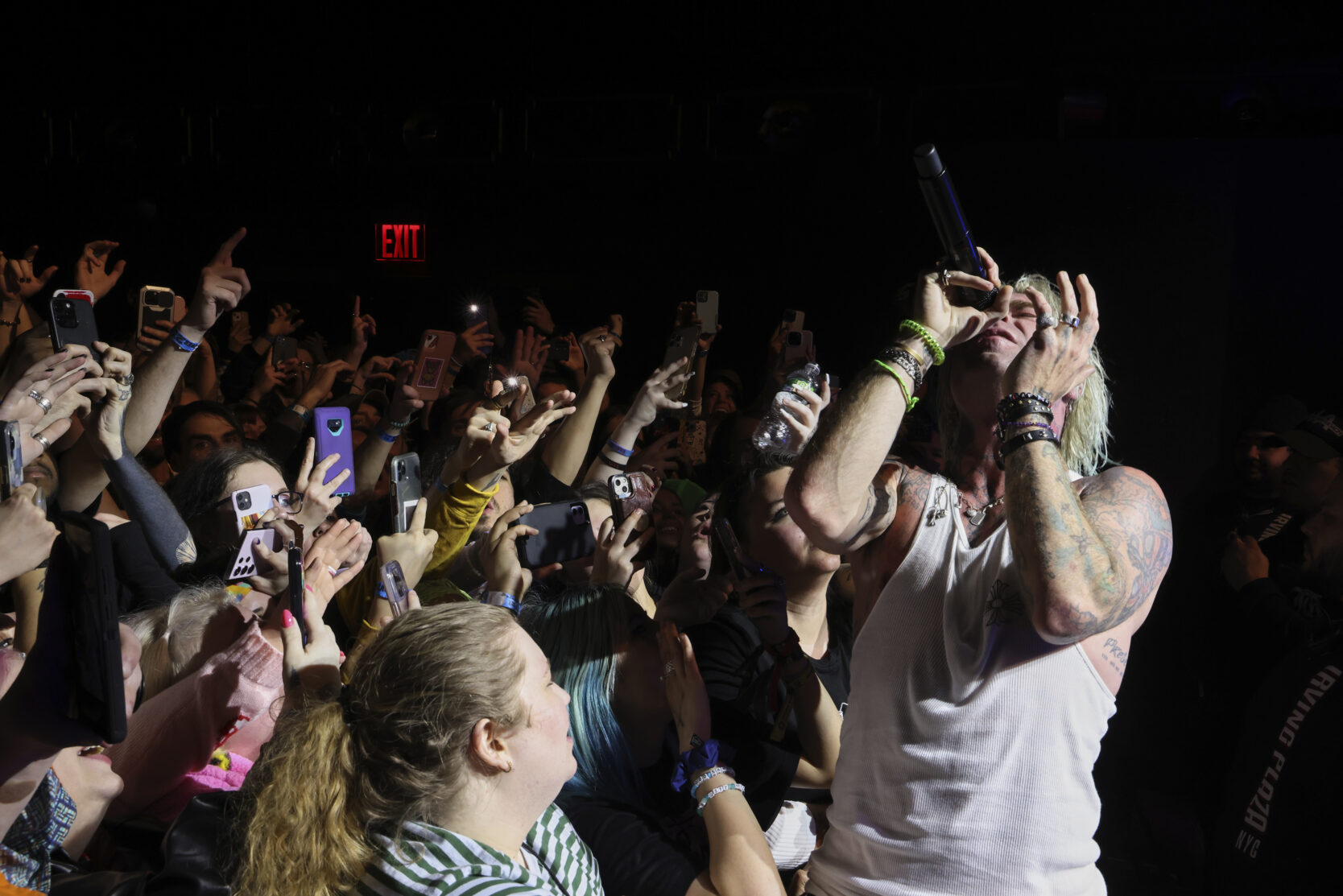
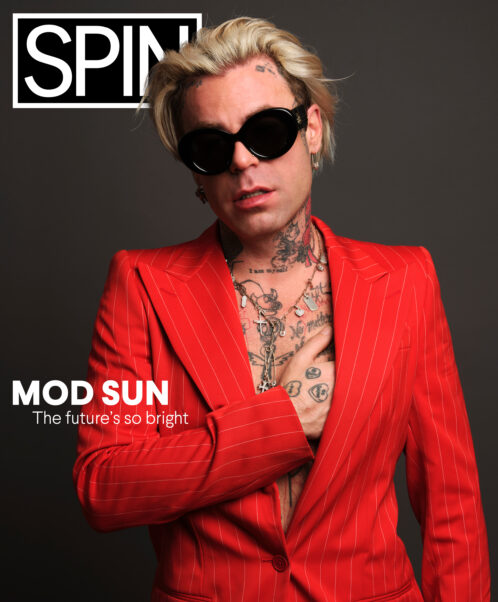
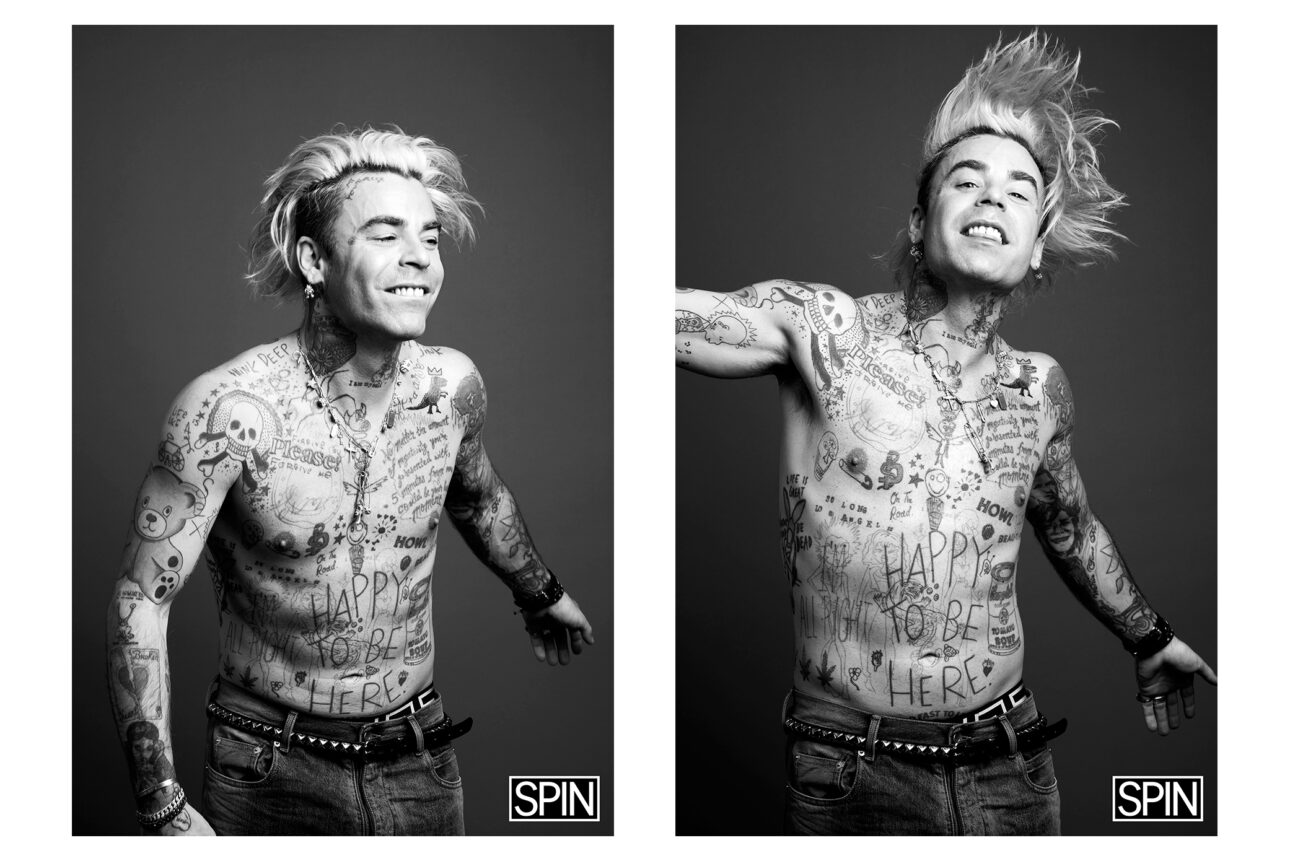 Photo Credit: Jesse Frohman
Photo Credit: Jesse Frohman
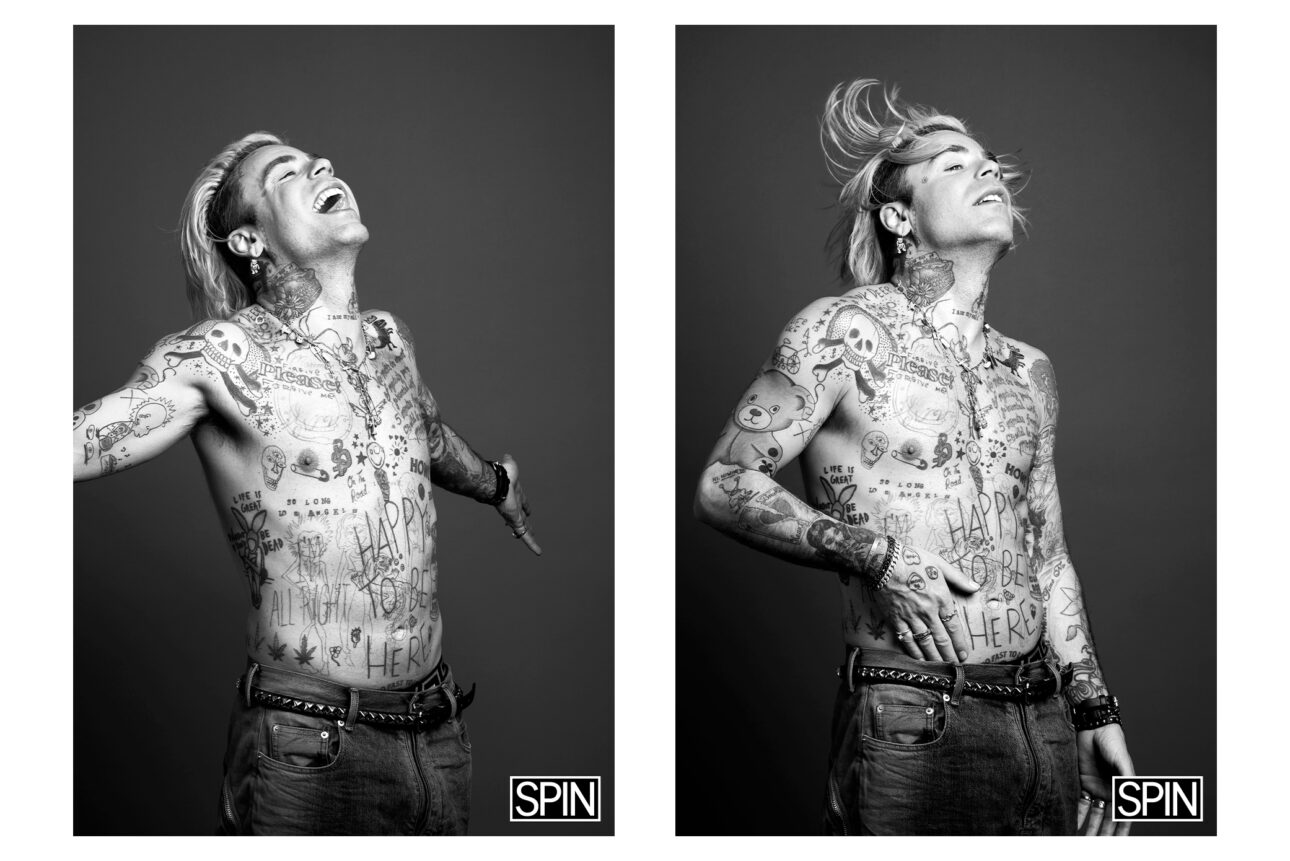 Photo Credit: Jesse Frohman
Photo Credit: Jesse Frohman
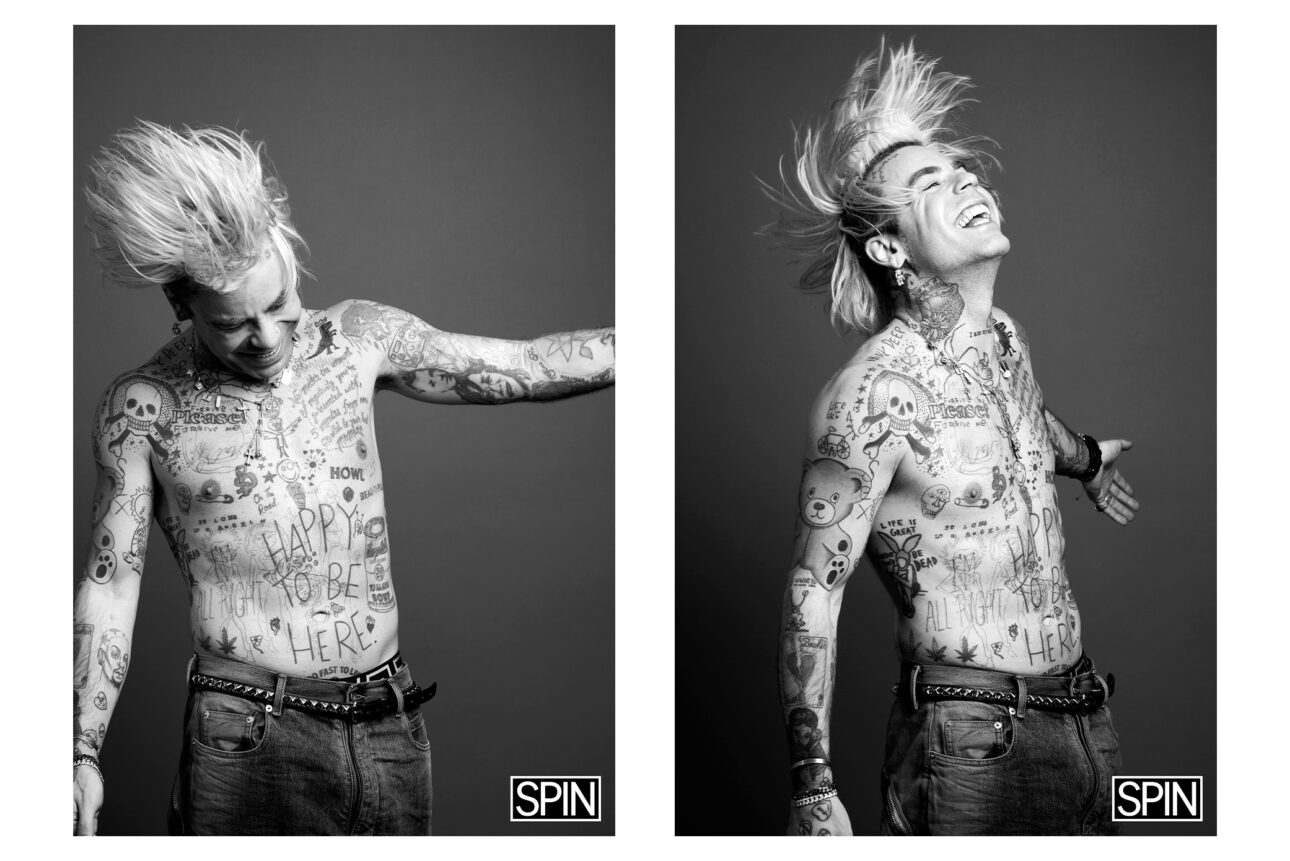 Photo Credit: Jesse Frohman
Photo Credit: Jesse Frohman
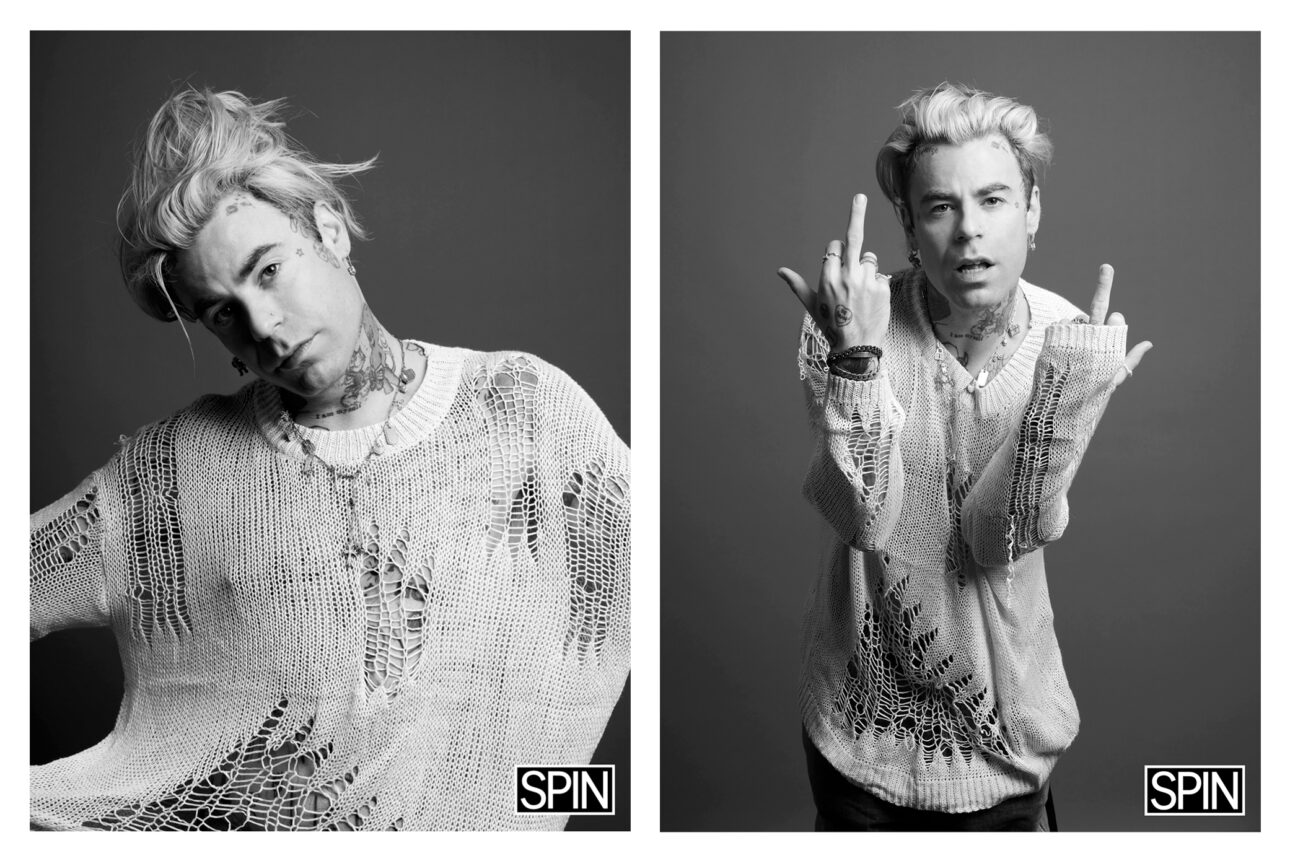 Photo Credit: Jesse Frohman
Photo Credit: Jesse Frohman
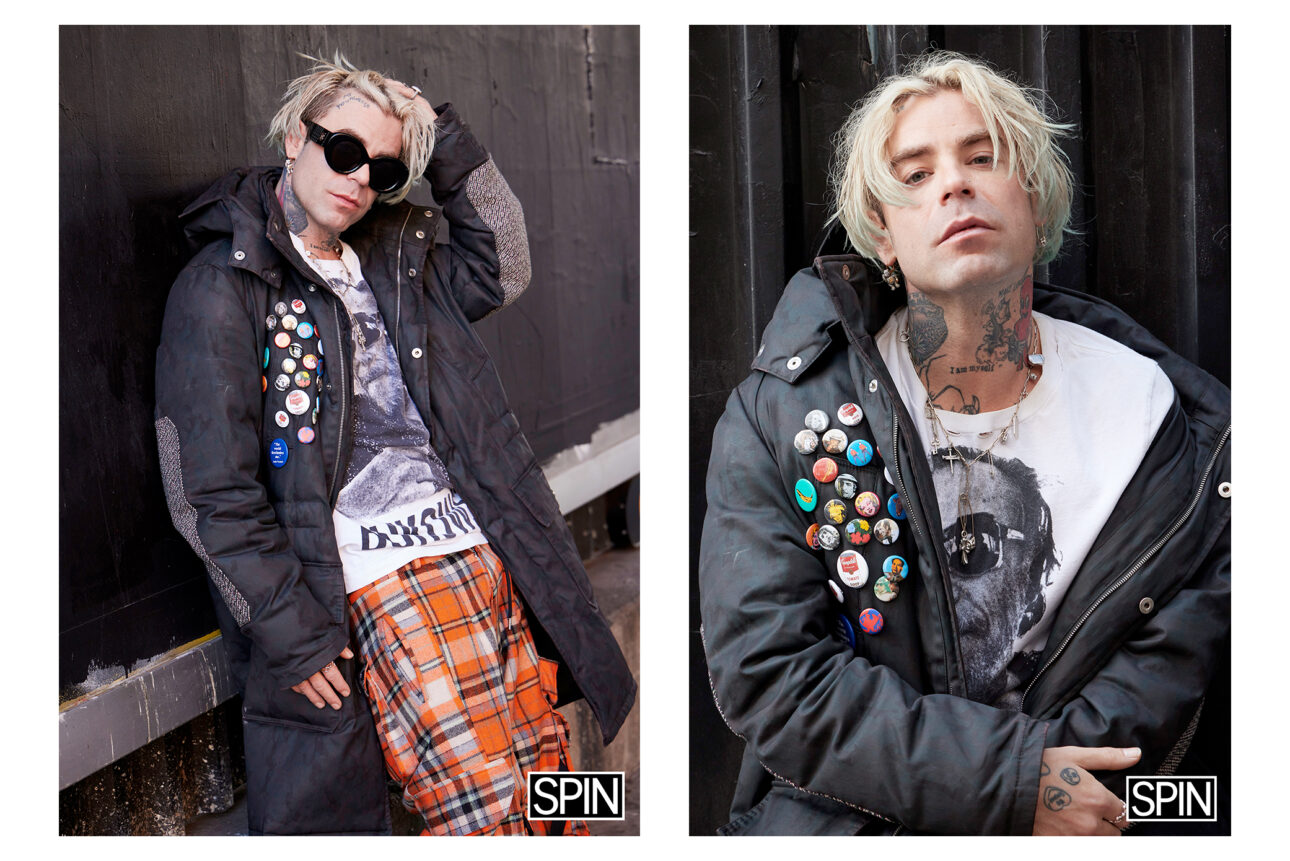 Photo Credit: Jesse Frohman
Photo Credit: Jesse Frohman
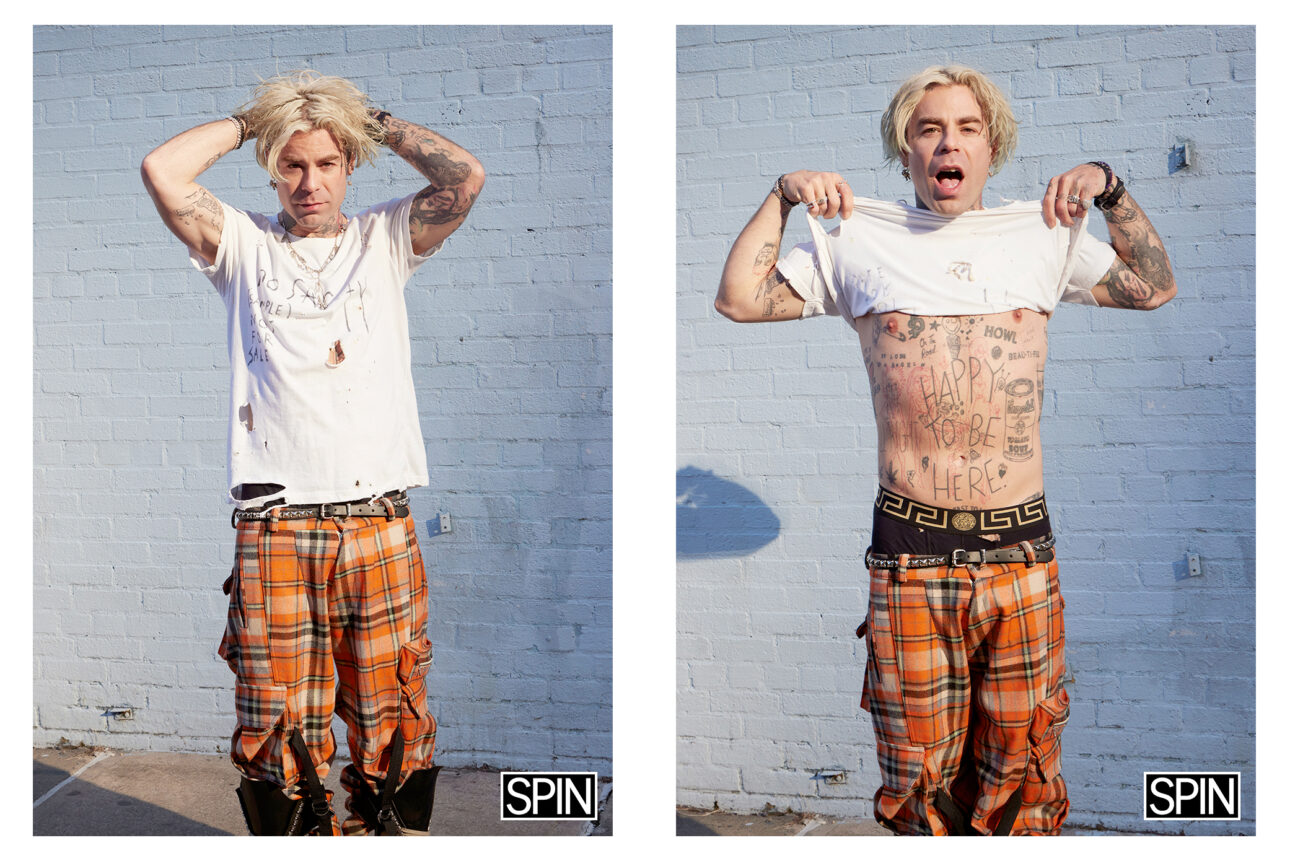 Photo Credit: Jesse Frohman
Photo Credit: Jesse Frohman
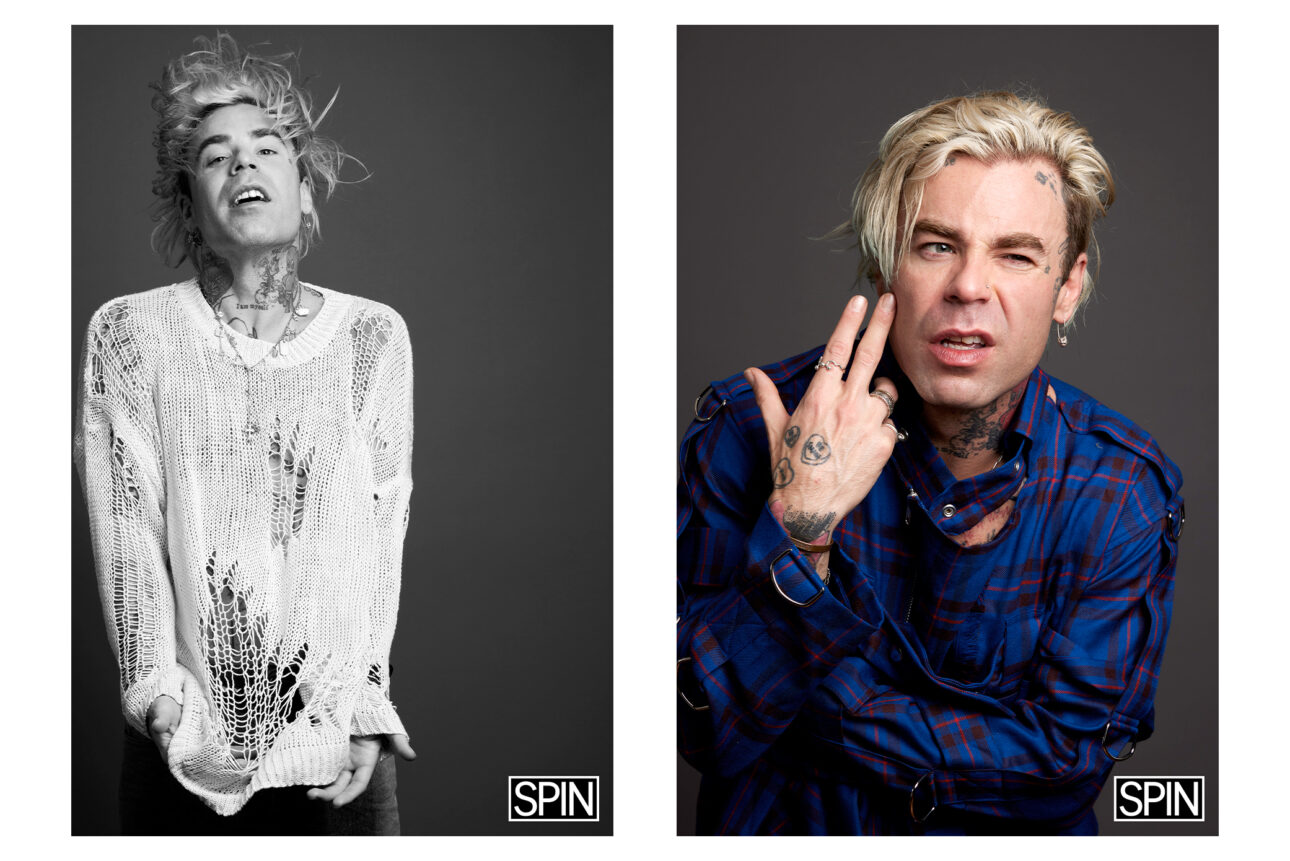 Photo Credit: Jesse Frohman
Photo Credit: Jesse Frohman
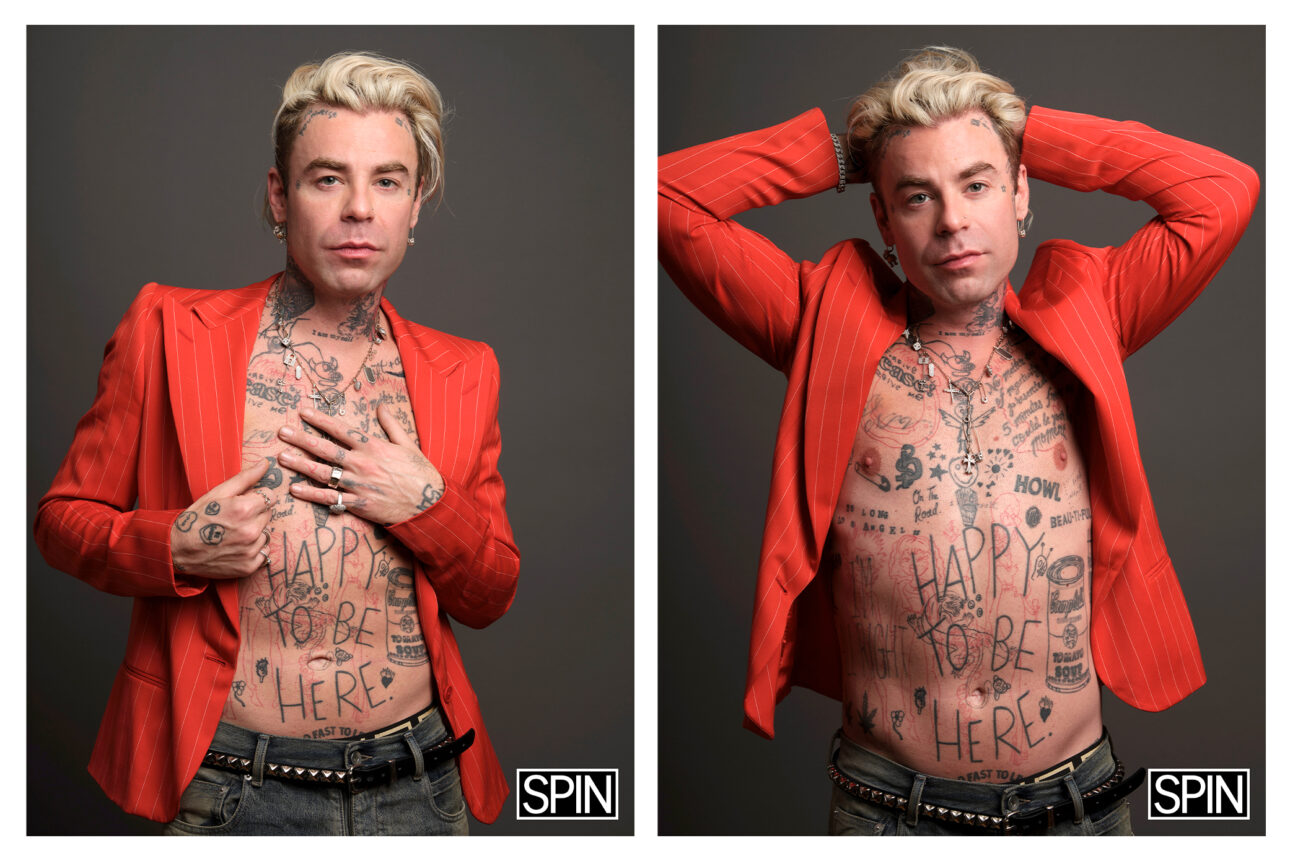 Photo Credit: Jesse Frohman
Photo Credit: Jesse Frohman
